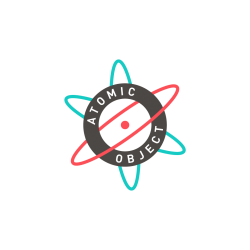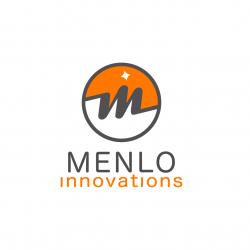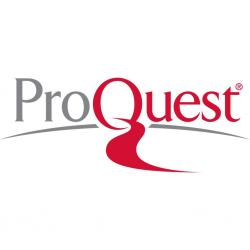This is Ann Arbor's 9th year participating in World Information Architecture Day. Come join us explore this year's theme, "The IA Element."
Past, Present and Future
Each part counts for its own purpose. But all elements must work together. The meaning behind it is the IA element.
World IA Day was created to celebrate Information Architecture (IA) and to empower local leaders keep growing and sharing within their communities.
In 2020, more than anything, we want to reinforce this celebration – highlighting how IA is Elemental (or integral) to having the best results.
How IA ties and binds different ideas involved, the end users, the stakeholders, the designers and the developers. How IA is often the bridge element between them all and tying together through understanding. How IA filters the noise for a better collaboration for a growing community.
IA is essential, IA is key, IA is Elemental.
Venue, parking and transit
Venue
Our event will be held on Saturday, February 22 at the Rogel Ballroom at the Michigan Union on the University of Michigan Campus. Registration, breakfast, & networking start at 8:30, and presentations begin promptly at 9:30.
Michigan Union
Rogel Ballroom - 2nd Floor
530 S. State Street
Ann Arbor, MI 48109
Parking
The Michigan Union is located within walking distance of both the Blake Transit Center and the Central Campus Transit Center (CCTC). Find buses: The Ride.
Updated Parking Information:
The Thompson structure at 508 Thompson Street will be available for anyone arriving between 7:30AM and 11:30AM! Take advantage of this extremely close parking deck for only $5.00 for the entire day! Late arrivals, please see additional options listed below.
Additionally, several options are available for Downtown parking, for more info see: Downtown Development Authority. The following options are paid hourly:
- metered street parking
- to the north, a parking structure on Maynard between E. Liberty and E. William
- to the northwest, an underground Library Lane parking structure located between 5th Avenue and Division St.
- to the east, a parking structure at the corner of S. Forest Ave. and Willard St.
Accessibility
We are committed to making this an inclusive and accessible event. We welcome people with disabilities. For questions about accessibility or to request an accommodation, please email annarbor@worldiaday.org.
Program/Schedule
8:30 AM - 9:30 AM
Registration, Breakfast, Networking
9:30 AM - 9:40 AM
Welcome
9:40 AM - 9:45 AM
Platinum Sponsor, The Understanding Group (TUG)
9:45 AM - 10:45 AM
“Gentle Change”
Peter Morville
President, Semantic Studios
We are in the business of change. The bridge from "what is" to "what if" begins with our models and maps. And yet, as a "move fast break things" mindset undermines research and planning, it is we as designers and information architects who struggle to adapt. To fix the interface, we must fix the culture, but to do so, we must go from sensemaking to changemaking; and that's a chasm we're not ready to cross.
If we hope to make our cultures capable of compassion for users, we might learn from those who for centuries have worked to grow compassion for animals. From humane societies and sanctuaries to undercover investigations and shock advertising, the diversity of strategies for advancing animal wellbeing is impressive; even as the challenges they/we face are familiar.
How do we overcome motivated reasoning and cultural resistance? How might we cultivate kindness and expand the moral circle by reshaping the categories of us and them? How can we use cognitive bias to our advantage without corrupting the means and the ends? What are the limits of positive reinforcement? What if we banish externalities, see the whole ecosystem, and shift from human-centered to un-centered design?
In this talk, we'll use the lenses of information, action, experience, and environment to explore how their ways of change might inform ours. And we'll consider why, in an era of acceleration, it makes sense to slow down. Moving fast breaks things. It sows the seeds of fear, anxiety, grief, and trauma. Now is the time for gentle change. It's slow, difficult, unorthodox, and more transformational than we realize. As Pema Chodron whispers "patience is a revolutionary act."
10:45 AM - 11:00 AM
Break
11:00 AM - 11:30 AM
“Artificial Intelligence & Consent”
Meg Green
Senior UX Designer, Thomson Reuters
It is understood that when partaking in online social media, you are providing these sites your data, whether that be tweets, likes, shares, login location, or photos, which can then be used to train AI. By signing up, you agreed to a lengthy ToS, which you occasionally receive emails about how they were updated. You understand this is being used, potentially to manipulate you, but you consented, so everything is peachy. You may even be aware that this data can be used by law enforcement, which makes you uneasy, but what is there to do?
And thus, this is where we as a society need to rethink consent, even informed consent. At this moment, it is binary to the extent that you participate, or you do not, and the ramifications of both are intimidating. In focusing on individual consent, we lose sight of the truth: responsibility lies with those in power to protect society from mass surveillance and manipulation. IA has made AI powerful, too powerful, and too broad. It is impossible to escape without systematic change on a legal level.
11:30 AM - Noon
“Mindful Models and the Conscious Organization”
Dan Cooney
Information Architect, The Understanding Group
This talk will explore parallels between how we relate to our individual minds and how we relate to IA models used by an organization. As individuals, we commonly mistake ideas in our heads for reality, clinging to what we are convinced of. In organizations we also commonly cling to models we have made, championing them as truth and defending them from perceived attack instead of being open to change. We will explore transferring mindfulness practices used by individuals to the organizational setting, in search of a balance between making compelling IA models for effective organizational coordination, while staying open to seeing and listening to what is really happening in the world and changing plans based on feedback.
Organizations can develop systems to continuously create and maintain IA models which enable the organization to coordinate internally and externally and be responsive to their surroundings (customers, markets, etc.), but only after we understand IA models to be both critically necessary for organizational coordination and as imperfect and impermanent tools.
Noon - 1:30 PM
Lunch
1:30 PM - 1:35 PM
Welcome Back
1:35 PM - 2:05 PM
“Every Word Counts: Building a Team Architecture for Collaboration”
Julie Cruz
Director of User Experience, PawnGuru
In keeping with the theme for WIAD 2020: IA is elemental in cultivating collaboration within and across teams. Specifically; how we structure our conversations, facilitate brainstorms, and make decisions are all, in essence, information architecture. I will discuss how we can design conversations and meetings intentionally such that creativity can flow and consensus can be reached more productively. I will draw from a variety of resources I have found helpful over the years, supplemented by stories of personal triumph and failure. Attendees will take away IA collaboration strategies that they can then use on their own teams.
2:05 PM - 2:55 PM
“Information Architecture and the Coming Digital Renaissance”
Daniel O'Neil
Information Architect, The Understanding Group
Agile methodologies have harnessed software development and started to create effective Minimum Viable Products and final deliverables with more success than ever before. Yet the outcomes of projects can often miss the expectations of the project champions, either in terms of the scale of what was delivered or its fit with what they thought they were trying to describe.
But software can be better. Projects that are developed with an architectural focus on structural integrity, meaning, and place-making result in happier stakeholders, higher project completion rate, and true integration with enterprise initiatives.
This talk describes how Information Architecture can profoundly change the way that software is made. It covers the major concepts of architectural thinking, places it in context with other software disciplines, and shows how it can address the most common challenges of truly successful software development.
2:55 PM - 3:15 PM
Break
3:15 PM - 3:45 PM
“The Chemistry of Information Architecture and Experience Design”
Scott Showalter
Product Delivery Coach, Ford
Whether we're constructing homes and towers or digital content, goods and services, the materials, structures, patterns and practices with which we architect these products matter, as does how each of these elements interact with one another. Castles built upon sand won't last a single tide, and the same is true for the experiences we craft. In this talk, Scott will reveal the elements of information architecture that create lasting experiences and how they interact with principles of UX to create content, products and experiences that stand the test of time. Peer into various organization systems and explore the value each can provide to the problems we're solving and to our solutions. Discover how understanding context can improve the quality of our products. Gain insight into the varying mental models of our customers to improve the structures of our information. Learn how ethnography can improve and enrich the ways our consumers solve problems. Finally, see how each of these elements ties together to powerfully and positively impact the outcome of our solutions.
3:45 PM - 4:45 PM
“The Structuralist Language for Information Architecture”
Rachel Aliana Jaffe
CEO, Adjacent
Navigation and categorization have traditionally been conceived as elemental to the conception of Information Architecture. I believe this conception of the field has confined the potential of IA. With the dissolution of the Institute for Information Architecture, now is a moment when the nature of Information Architecture can come into question. Now is a moment when the idea of Information Architecture to evolve to encompass the architecture of all elements and dynamics of a website.
In order to understand and analyze the architecture of online spaces outside of navigation, there is a need for a general language for Information Architects. This talk will delve into the basic words of the Structuralist language of Information Architecture, such as objects, channels, object groups, and blocks. These words can give Information Architects clearer concepts to describe what interactions occur on in online spaces. These words can enable Information Architects to develop shared patterns that include search and navigation, but also vulnerability, power, innovation. These newly defined fundamental elements can help build firmer bridges between Information Architecture and adjacent fields and increase the role of the Information Architect as a powerful player in the design of businesses and organizations.
4:45 PM - 5:00 PM
Closing Remarks, Raffle
5:00 PM - 7:00 PM
Post-Event After Party
Just added to our schedule - we're so pleased to announce we will be hosting a post-event after party at Ashley's of Ann Arbor! We can't wait to get together to chat about all the exciting talks and new things we learned!
Please join us from 5:00 - 7:00 PM for complimentary appetizers (wings, nachos, etc) in the basement at Ashley's.
338 S State St.
Ann Arbor, MI 48104



















